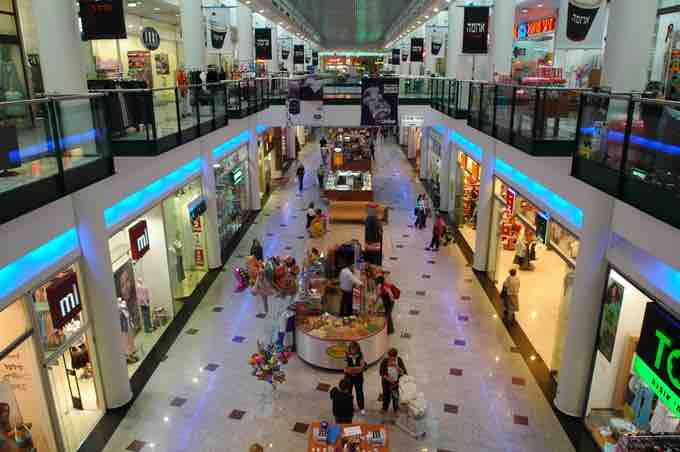A retail kiosk (or mall kiosk) is a store operated out of a merchant supplied kiosk. It is typically enclosed with the operator located in the center and the customer approaching the vendor from across a counter. These units are located in shopping malls, airports, stadiums, or larger stores. The industry term for smaller units is retail merchandising unit (RMU) cart or mall cart. These smaller desk size units were created to avoid lease conflicts with existing stores with "kiosk" language exclusions and local fire codes requiring greater distance between units by placing them on wheels. RMUs function with the operator approaching the customer from the area surrounding the unit and showing or even demonstrating the product firsthand. Their placement guarantees high foot traffic from shoppers and offers opportunities for impulse sales .

Mall Kiosk
These are mall kiosks in Haifa Mall, Haifa, Israel.
RMUs are usually supplied by the property owner and licensed rather than leased. Kiosks are also available under the same conditions and may even be supplied by the property owner when they have been abandoned by former tenants. Rents vary by market conditions and mall traffic. Holiday rents are generally term rents that encompass both November and December with a combined sales breakpoint for the holiday term on short-term agreements or annual sales breakpoints on permanent agreements. These holiday rents are often three to four times the non-holiday rents for each of these two months.
Due to the high visibility of these units, which are most often located in the common areas of malls, these businesses can often gain a relatively trackable monthly sales figure after a three or four month trial. Many other benefits exist, such as low overhead, small inventories, and low or non-existent CAM, tax, utility, and marketing fees, as compared to their in-line storefront counterparts, which can often have fees equal to or in excess of the rents themselves.